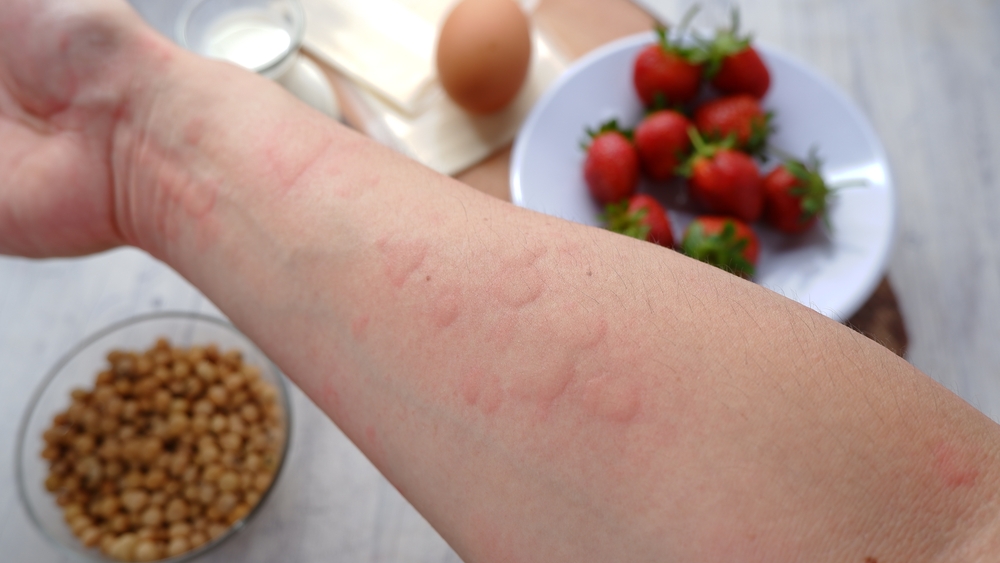Celldex Therapeutics, Inc.’s barzolvolimab showed sustained and deepening efficacy plus well-tolerated safety in chronic spontaneous urticaria (CSU) across a 52-week study, according to data presented at the European Academy of Dermatology and Venereology (EADV) Congress in Amsterdam.
Barzolvolimab specifically targets mast cells by binding the receptor tyrosine kinase KIT with high specificity and potently inhibiting its activity, which is required for mast cell function and survival.
“The barzolvolimab data reported today set a new bar for efficacy in CSU—demonstrating the highest rate of complete response observed in a well controlled study,” says study author Martin Metz, MD, Professor of Dermatology and Allergy at Charité – Universitätsmedizin in Berlin, Germany, in a news release. “By addressing the root driver of chronic spontaneous urticaria, the mast cell, barzolvolimab provides early, durable and, most importantly, the opportunity for complete symptom control for the many patients who do not see meaningful benefit from the current standard of care, including patients with omalizumab refractory disease. Importantly, barzolvolimab was also well tolerated across the 52-week treatment period further supporting barzolvolimab’s significant potential to become a transformative treatment option for patients suffering from this often very severe and debilitating disease.”
The Company previously announced that this Phase 2 study of barzolvolimab in patients with moderate to severe CSU refractory to antihistamines, including patients with biologic-refractory disease, met its primary endpoint—a significant improvement in UAS7 (weekly urticaria activity score) compared to placebo at 12 weeks—across all dose groups tested.
The new long-term data from the Phase 2 study of barzolvolimab assessed at 52 weeks produced improvements in UAS7 (weekly urticaria activity score), previously shown to be statistically significantly vs placebo at Week 12, were noted as early as Week 1 and were sustained or deepened at Week 52.
At Week 16, patients receiving low-dose barzolvolimab (75mg) or placebo were transitioned to barzolvolimab 150mg or 300mg; after crossover, these patients experienced similar clinically meaningful disease response as the rest of the study population.
Fully 71% of patients treated with barzolvolimab150mg every four weeks (Q4W), and 52% of patients treated with 300mg Q8W had a complete response (no itch/hives; UAS7=0) at Week 52. These responses were observed early and sustained through 52 weeks. Just shy off three-quarters of patients treated with barzolvolimab 150mg Q4W and 68% of patients treated with 300mg Q8W had well controlled (UAS7<6) disease at Week 52, the study found.
These responses were observed regardless of prior omalizumab experience.
Barzolvolimab was well tolerated with a favorable safety profile through 52 weeks of treatment. Most adverse events were grade 1 (mild), mechanism related (KIT) and expected to be reversible. The most common treatment emergent adverse events occurring in greater than 10% of barzolvolimab treated patients were hair color changes, neutropenia, urticaria, skin hypopigmentation and nasopharyngitis. Neutrophil counts did not decline further with continued dosing and there was no association between infections and neutropenia. The hypopigmentation was observed with longer term exposure and did not lead to treatment discontinuation. Adverse events were not dose dependent.
“We believe this data set is a landmark event for the barzolvolimab program and for the treatment of CSU,” adds Diane C. Young, MD, Senior Vice President and Chief Medical Officer of Celldex Therapeutics. “CSU is a disease of misery that often impacts all aspects of patients’ lives. There is an urgent need for new treatment options and the profound and sustained results observed across all endpoints in this study suggest that barzolvolimab could play a critical role in addressing this unmet need for patients, their families and physicians. Phase 3 studies of barzolvolimab in CSU are actively enrolling patients and progressing on schedule.”


